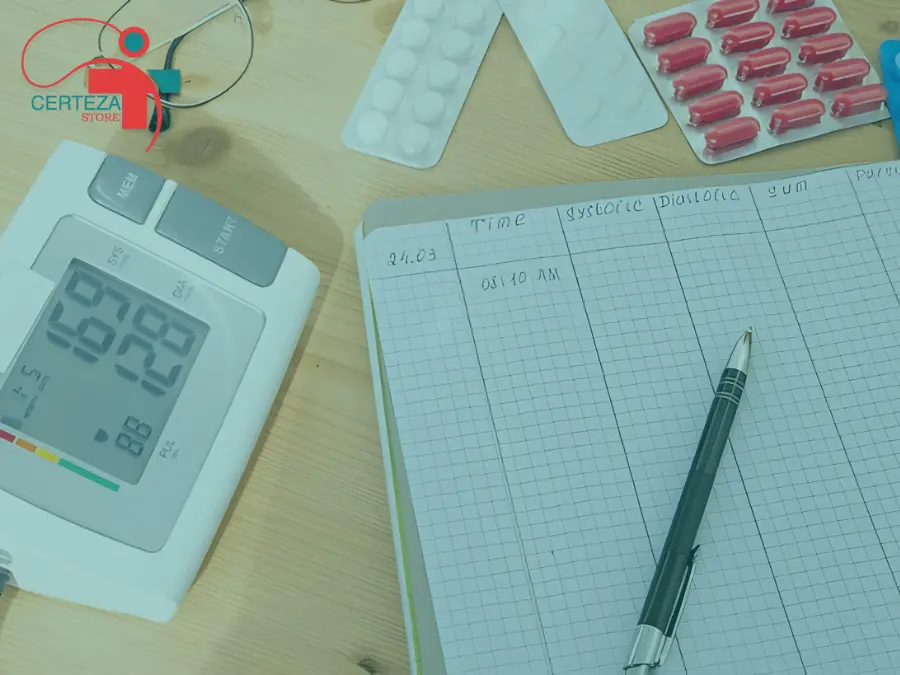- Your cart is empty
- Continue Shopping
What Are the Common BP Problems People Face in Winter?

Winter in Pakistan brings comfort, cozy evenings, and warm foods, but it also affects your blood pressure more than you might realize. From Lahore to Karachi, Islamabad to Multan, many people experience sudden BP fluctuations during the cold months without understanding the cause.
This article explores how cold weather impacts your heart and blood pressure, and how regular home monitoring with a reliable device like Believia BP-50A Digital Blood Pressure Monitor can help you stay safe and informed.
Why Does Blood Pressure Fluctuate More During Winter?
When temperatures drop, your blood vessels constrict to preserve body heat. This makes the heart work harder to push blood through narrower veins, often leading to temporary high blood pressure.
People who already have hypertension may notice slightly higher readings in cold mornings, which is why doctors recommend daily monitoring using medically tested digital BP monitors during winter.
Can Cold Temperatures Lead to Sudden High Blood Pressure?
Yes. In cities like Islamabad and Peshawar, where early mornings are particularly cold, even a few degrees of temperature drop can raise your BP levels.
If you experience mild headaches, flushed skin, or a faster heartbeat, it could be a sign of cold-induced hypertension. Keeping a Believia BP-50A at home allows you to record readings accurately and track trends over time.
Why Do Some People Experience Low BP in Cold Mornings?
Not everyone suffers from high BP in winter. Many face the opposite. Low blood pressure, or hypotension, is common among seniors and people with low activity levels.
Skipping breakfast or staying inactive for long hours can reduce blood flow, leading to fatigue, dizziness, and cold hands. Monitoring your BP regularly helps detect these dips early.
How Does Reduced Sunlight Affect Your BP and Mood?
Winter days are shorter, meaning less exposure to sunlight and vitamin D deficiency, which affects both mood and blood circulation. A sluggish circulatory system can make you feel tired or light-headed, especially in regions like Faisalabad and Gujrat.
Doctors often recommend daily walks and consistent BP tracking during this season to maintain balance.
Is Winter Dehydration a Hidden Cause of BP Problems?
Surprisingly, winter dehydration is a silent problem. People drink less water in cold weather, reducing blood volume and causing BP instability.
If you notice irregular readings, dry skin, or unusual fatigue, increase your water intake and keep an eye on your daily BP using Believia Digital Blood Pressure Monitors.
Can Poor Winter Diet Increase Blood Pressure Risks?
Heavy oily foods, salty soups, and fried snacks are part of every Pakistani winter menu, but they can raise your BP levels significantly.
To keep your heart healthy, reduce salt intake, eat more fruits, and track how your BP reacts to dietary changes. Reliable digital devices like the Believia BP-50A, available at Certeza Store, can help you maintain accurate records.
Why Are Heart Patients More Vulnerable in Cold Season?
Cold air and sudden temperature changes put extra stress on the cardiovascular system. Heart patients in Lahore, Karachi, and Peshawar often report chest discomfort or fluctuating BP in December and January.
Keeping a digital upper arm BP monitor at home allows early detection of abnormal readings and helps avoid emergencies.
How Does Lack of Exercise in Winter Affect Blood Pressure?
Most people reduce physical activity during winter, which slows metabolism and circulation. This can cause unstable BP levels and fatigue.
Even 15 minutes of light walking daily can make a difference. Use your Believia BP-50A Online to observe improvements in your readings as you adopt healthier habits.
What Are the Warning Signs of Unstable BP in Winter?
Common symptoms include headaches, blurred vision, dizziness, chest tightness, and irregular heartbeat. If you experience these frequently, don’t ignore them.
Monitor your readings for a few days. If they remain unstable, consult your doctor. Regular self-checks save time and prevent complications.
How Can Home Monitoring Help Detect Winter BP Changes Early?
Using a home BP monitor is no longer optional, it’s a health essential. Devices like Believia BP-50A, built with German technology, offer medically approved accuracy and are recommended by thousands of doctors.
They are easy to use, comfortable on the arm, and provide instant readings, perfect for families across Lahore, Islamabad, Karachi, and Multan.
What Lifestyle Habits Can Keep BP Stable in Winter?
- Drink enough water daily
- Eat light, warm meals with low salt
- Walk in morning sunlight for 15–20 minutes
- Avoid excessive tea or caffeine
- Track your BP readings with a trusted monitor
Following these habits helps prevent both low and high BP problems in cold weather.
When Should You Consult a Doctor About Winter BP Problems?
If your BP remains above 140/90 or below 90/60 even after lifestyle changes, it’s time to consult a professional.
Your home readings from Believia BP-50A can help your doctor understand your daily BP pattern, ensuring better diagnosis and treatment.
Conclusion: Stay Heart-Healthy This Winter
Winter affects everyone differently. Some face low BP, others struggle with hypertension. The key is awareness, consistency, and regular monitoring.
The Believia BP-50A Digital Blood Pressure Monitor is a reliable, doctor-recommended device that helps you track your readings from the comfort of your home.
Available at Certeza Store with Nation-Wide Delivery, Same Day Dispatch Guarantee, and 100% Original Product assurance, Believia ensures you stay healthy, informed, and protected this winter.


